

- Susan Barton
- Cruso
- Friday
- Mr.Foe
- Daniel Foe
- Young Girl
- Amy



Hello Everyone,
This blog is a part of thinking activity Which assigned by Megha ma'am.
Franz Fanon :-
Frantz Fanon (1925–1961) was a Martinique-born psychiatrist, philosopher, revolutionary, and influential writer on postcolonialism, critical theory, and Marxism. His work primarily focuses on the psychological and cultural effects of colonization on the oppressed and the colonizers, and he is widely known for his analysis of colonial racism, alienation, and decolonization.
Some key points about his life and work:
1. Early Life : Born in Martinique, a French colony in the Caribbean, Fanon experienced the realities of racial discrimination early in life. He served in the French army during World War II, after which he studied psychiatry in France.
2. Influential Works :
(1) Black Skin, White Masks (1952): Fanon explores the psychological trauma of colonialism, examining how colonized individuals internalize feelings of inferiority imposed by colonial powers. The book discusses issues of race, identity, and self-perception.
(2) The Wretched of the Earth (1961): Written during the Algerian War of Independence, this book examines the brutal violence of colonialism and advocates for the use of violence as a means of achieving decolonization. Fanon analyzes the psychological effects of oppression and argues for the necessity of revolutionary struggle for true freedom.
3. Decolonization and Violence : Fanon viewed decolonization as an inherently violent process, as he believed that colonialism was maintained through force and violence. His advocacy for revolutionary violence was both controversial and influential, especially among anti-colonial movements in Africa, Asia, and Latin America.
4. Legacy and Influence: Fanon’s ideas have had a lasting impact on a range of fields, including critical race theory, postcolonial studies, and social psychology. His work influenced revolutionary leaders and movements worldwide, such as the Black Power movement in the United States and anti-colonial movements across Africa.
Fanon’s theories continue to be central in discussions about race, identity, colonialism, and resistance, especially in contexts where racial and economic inequalities persist.
Major Works :
- Black Skin White Masks(1952)
- A Dying Colonialism (1959)
- The Wretched of the Earth (1961)
- Toward The African Revolution (1964)
Question & Answer:-
1) What is the role of violence in colonialism with reference to the wretched of Earth?
Ans.
"Decolonization, therefore, implies the urgent need to thoroughly challenge the colonial situation. Its definition can, if we want to describe it accurately, be summed up in the well-known words: “The last shall be first.” Decolonization is verification of this. At a descriptive level, therefore, any decolonization is a success."
Frantz Fanon’s "The Wretched of the Earth" critically examines colonialism, which is when one country takes control of another to set up settlements and exploit its people and resources. Colonialism began in Europe around the 15th century and still exists in some parts of the world. Fanon, who was born in Martinique, a French colony in the Caribbean, had a personal understanding of colonialism. In his book, he focuses on how colonialism has oppressed and exploited much of the Third World through racism and violence. When Fanon wrote this book in 1961, many colonized nations were fighting for independence, dealing with the lasting harm from centuries of exploitation. The The Wretched of the Earth serves as a guide for understanding the experiences of the colonized, and Fanon argues that the oppressive, racist, and violent system of colonialism can only be stopped by meeting it with force.
"The people who in the early days of the struggle had adopted the primitive Manichaeanism of the colonizer—Black versus White, Arab versus Infidel—realize en route that some blacks can be whiter than the whites, and that the prospect of a national flag or independence does not automatically result in certain segments of the population giving up their privileges and their interests."
Fanon describes colonialism as a system that divides people into “black” and “white” based on a belief called Manichaeanism, which originates from an old Persian religion based on the struggle between light and dark. Fanon says colonialism adopts this view by seeing the colonized (often black) as evil and immoral, while the white colonizers are seen as good. Colonialism, therefore, sees the colonized as savages and even animals, stripping them of humanity. According to Fanon, colonialism creates two separate worlds: the colonist’s clean, well-kept area and the crowded, neglected “native” quarters. Colonialism, he argues, is built on this idea of separating and oppressing people based on skin color.
Besides being racist, Fanon says colonialism is also a system of violence, designed to control the colonized by force. From the start, colonial control was established through violence, and it continues this way. The colonized world is divided by military and police forces, which maintain control by intimidating and threatening violence. For those living under colonial rule, there’s a constant sense of fear—they know they can be arrested, beaten, or starved at any moment. This violence doesn’t stop once colonial rule is set up; it’s always present in the lives of the colonized.
"Within the political parties, or rather parallel to them, we find the cultured class of colonized intellectuals. The recognition of a national culture and its right to exist represent their favorite stamping ground. Whereas the politicians integrate their action in the present, the intellectuals place themselves in the context of history. Faced with the colonized intellectual’s debunking of the colonialist theory of a precolonial barbarism, colonialism’s response is mute."
Fanon calls this ongoing violence “atmospheric violence,” a constant tension that never goes away. He believes that this kind of violence shows that colonialism can’t be defeated through peace or negotiation. Instead, the colonized instinctively know that they must use force to achieve freedom. For them, violence is a way to cleanse themselves from the feelings of inferiority that colonialism has forced upon them. In short, Fanon argues that since colonialism is based on violence, it must be resisted with violence.
(2) Describe what Manichaeism means in a colonial context.
Ans.
A major religion founded in Persia during the 3rd century, which is primarily concerned with the struggle between light (good) and dark (evil) forces. Fanon uses Manichaeanism as an analogy for colonialism. The colonial world is a “Manichaean World,” he claims, that is divided into the colonist—or the light and good—and the colonized—or the dark and evil. This basic belief in the evil of Africans is the basis for the rampant racism that plagues colonial society.
The Manichaeanism of colonial society is left intact during decolonization, only the colonists are the evil ones. The colonized are “penned in” by colonial society, and the only place they are free is in their dreams. Each night the colonized run and jump freely, building muscles and aggressive energy, but the only place they can release this aggression during waking hours is on their own people. This aggression pits black against black, Fanon says, and places the colonized subject is a continual state of tension. The colonized must always be on guard and be careful not to step out of line, and they are always presumed guilty by the colonists. Yet the colonized do not believe they are guilty and do not accept the colonists as an authority, so they are, understandably, always tense.
This colonial world, Fanon says, “is a Manichaean world,” where the colonist makes the colonized into the epitome of evil. To the colonists, the colonized have no values or ethics and their culture and traditions are the mark of evil. This mark of evil has been answered with Christianity—the “white man’s Church”—which, instead of calling the colonized to God, has called them to the ways of their oppressors. Manichaeanism serves to dehumanize the colonized; they are reduced to animals and referred to by the colonists in “bestiary” terms.
Those who embrace the Manichaeanism of the colonizer and believe in black against white realize that “some blacks can be whiter than whites, and that the prospect of a national flag or independence does not automatically result in certain segments of the population giving up their privileges and their interests.” There are those who will profit considerably from war at the expense of those who sacrificed so freely. While a revolution may banish colonial oppression, there is still another system of oppression building. The people of the nation must abandon their simple view of the oppressor, Fanon says, as it is changing right in front of them.
"The people who in the early days of the struggle had adopted the primitive Manichaeanism of the colonizer—Black versus White, Arab versus Infidel—realize en route that some blacks can be whiter than the whites, and that the prospect of a national flag or independence does not automatically result in certain segments of the population giving up their privileges and their interests."(Chapter 2: Grandeur and Weakness of Spontaneity)
3) Write a short note on the title “The Wretched of the Earth”.
Ans. The title The Wretched of the Earth reflects the marginalized, oppressed, and colonized people whom Frantz Fanon addresses in his groundbreaking 1961 work. The term "wretched" highlights the suffering, dehumanization, and social degradation experienced by those subjected to colonial rule. It underscores the psychological and physical damage inflicted upon colonized populations, creating a sense of alienation and self-hatred.
key Themes :
1) Colonialism, Racism, and Violence:
Fanon argues that colonialism dehumanizes the colonized, leading to violent resistance as the oppressed reclaim their dignity and identity. Racism, a tool of colonial oppression, fosters division and perpetuates violence, suppressing native cultures and reducing people to "the wretched."
"The colonized intellectual should not be concerned with choosing how or where he decides to wage the national struggle. To fight for national culture first of all means fighting for the liberation of the nation, the tangible matrix from which culture can grow. One cannot divorce the combat for culture from the people’s struggle for liberation. For example, all the men and women fighting French colonialism in Algeria with their bare hands are no strangers to the national culture of Algeria. The Algerian national culture takes form and shape during the fight, in prison, facing the guillotine, and in the capture and destruction of the French military positions."
2) Oppression and Mental Health:
Fanon, a psychiatrist, explores the psychological impact of colonialism on the mental health of the colonized. The brutalities of colonization lead to alienation, self-doubt, and internalized inferiority among the colonized, reflecting how systemic violence damages both body and psyche.
"When colonization remains unchallenged by armed resistance, when the sum of harmful stimulants exceeds a certain threshold, the colonized’s defenses collapse, and many of them end up in psychiatric institutions. In the calm of this period of triumphant colonization, a constant and considerable stream of mental symptoms are direct sequels of this oppression."
3) Capitalism, Socialism, and the Third World:
Fanon critiques capitalism for exploiting the resources of the Third World, aligning instead with socialism as a pathway to economic independence and equality. He views socialist models as more aligned with the needs of newly independent nations, offering an alternative to exploitative capitalist structures.
"It is clear therefore that the young nations of the Third World are wrong to grovel at the feet of the capitalist countries. We are powerful in our own right and the justness of our position. It is our duty, however, to tell and explain to the capitalist countries that they are wrong to think the fundamental issue of our time is the war between the socialist regime and them."
4) Decolonization, Neocolonialism, and Social Class: Decolonization, according to Fanon, involves more than political liberation; it requires dismantling the social and economic hierarchies left behind. He warns against neocolonialism, where former colonizers maintain control through economic or cultural influence, and he advocates for a class-conscious approach to avoid replicating colonial inequalities.
" It is among these masses, in the people of the shanty towns and in the lumpenproletariat that the insurrection will find its urban spearhead. The lumpenproletariat, this cohort of starving men, divorced from tribe and clan, constitutes one of the most spontaneously and radically revolutionary forces of a colonized people."
" The struggle for national liberation is not a question of bridging the gap in one giant stride. The epic is played out on a difficult, day-to-day basis and the suffering endured far exceeds that of the colonial period."
5) Culture and the Emerging Nation:
Fanon emphasizes the need to revive indigenous culture as part of building national identity, empowering the colonized to rediscover and celebrate their heritage. He argues that culture is central to resisting neocolonial influences and fostering unity within emerging nations.
Bhav Spandan Youth Festival 2024











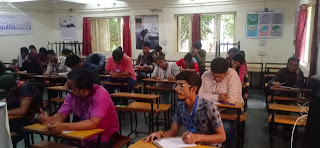

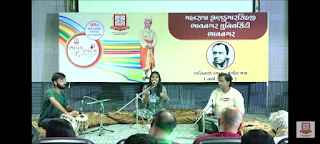






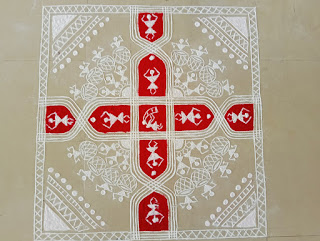















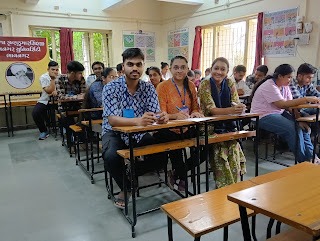

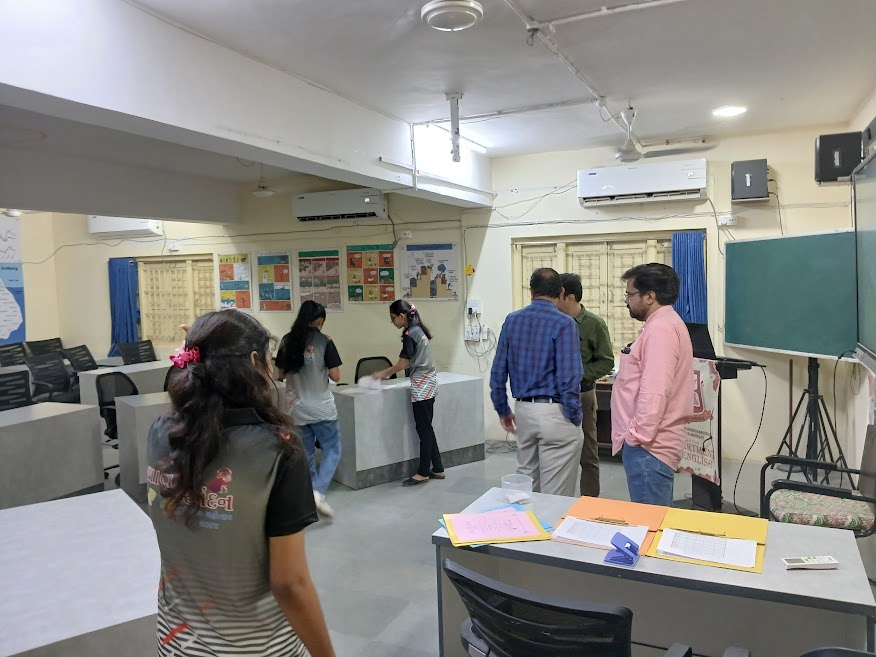
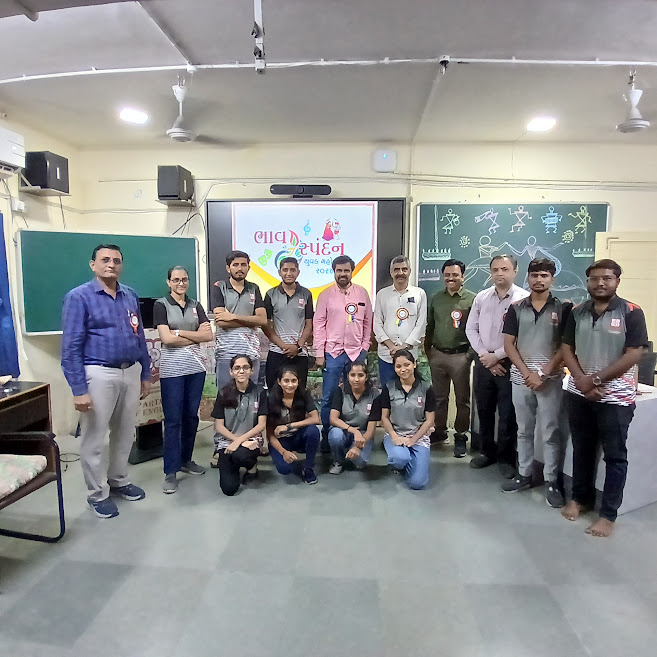


Code 22416: Paper 209: Research Methodology Plagiarism: Trap –Consequences,Forms, Types, and How to Avoid It Table of Content : Personal...